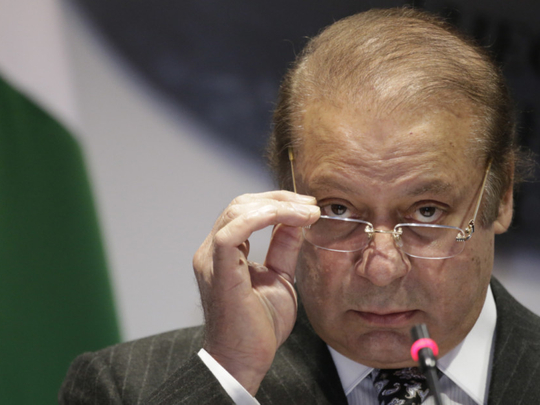
Ever since Donald Trump won the United States presidential election of November 8, last year, foreign policy wonks and crystal-ball gazers have gone into a frenzy, speculating on what Trump’s foreign policy would look like. The president-elect’s telephone conversation with Pakistan Prime Minister Nawaz Sharif, going by the transcript released by the Pakistani Information Office, has added to the element of curiosity among experts.
Already, doubts are being aired about Trump’s maturity to tackle the complex India-Pakistan relations. With the contours of his South Asia policy still unclear, many wonder how different Trump’s South Asia policy would be from that of his predecessor.
India — and also Pakistan — will closely watch whether Trump would further nurture the bilateral Indo-US relations built by outgoing President Barack Obama and Indian Prime Minister Narendra Modi. Or will Trump start rocking the boat? While Trump’s conversation with Sharif was played down by Trump’s advisers, many experts have urged Trump to exercise restraint and carefully weigh his words and actions.
They dread, for instance, the possibility of Trump wanting to get involved in the Kashmir issue. This could usher in a frosty period in US-India ties, a foretaste of which Washington has had in the past and a recurrence of which it would not like to see.
Trump has vowed to crack down on terrorism. While he has pledged to destroy Daesh (the self-imposed Islamic State of Iraq and the Levant) and Taliban, it remains to be seen whether he would also target anti-India groups such as Lashkar-e-Taiba and Jaish-e-Mohammad.
Fighting terrorism
Nevertheless, one wonders how Trump will react if the hostility between India and Pakistan erupted into an armed conflict. Using diplomatic channels, Washington has tried in the past to persuade India, for example, to exercise restraint after a terrorist attack.
Indians, tired of this diplomatic straightjacket, could skirt such US efforts in the future if they see Washington ignoring New Delhi’s interests and that the former’s talk about fighting terrorism excluded the terrorist attacks on India. The US could then lose its credibility and influence vis-a-vis India.
Washington has condemned terrorist attacks against the Indian army bases, particularly, in Pathankot and Uri. However, India would expect more than just lip service from Washington. It would be myopic if Trump threw overboard the progress the US has painstakingly achieved in its relationship with India. The stakes now are very high for the US, given that it is keen to cultivate a long-term strategic partnership with the world’s largest democracy, which is also seen as a promising emerging economy, a huge market for American companies and a counterweight to China.
US Congressmen, who blocked the sale of F-16 fighter jets to Islamabad last year, will continue to closely watch Pakistan because of its nuclear arsenal. Trump will likely enforce a regime of strict conditions for any future financial assistance for Pakistan.
Initial signals emanating from the Trump camp were encouraging for India: Trump’s participation as the chief guest at an event organised by the Indian community in Edison, New Jersey, and then greeting the Indian community in Hindi during his campaign signalled a strong desire to foster closer ties with India and its huge market. Trump’s daughter-in-law Lara, wife of Eric Trump, the president-elect’s second son, celebrated Diwali at a Hindu temple in October in Virginia as part of Trump’s efforts to reach out to the Indian-American community.
Greater assistance
India is also likely to benefit from Washington’s commitment to traditional Asian allies like Japan, South Korea and Taiwan, to counter the growing Chinese military build-up in the South China Sea. US could provide greater assistance, particularly, for enhancing India’s naval capabilities.
Many American experts on South Asia feel that Pakistan, forced by its own domestic pressures and problems, will continue to urge Washington to take up its litany of complaints, including Kashmir, with India. The US, in turn, is likely to tell Pakistan to settle these bilaterally with India.
Tariq Fatemi, the Pakistan prime minister’s Special Assistant on Foreign Affairs, during his recent visit to Washington, held informal meetings with some Obama administration officials.
On the other hand, Indian Foreign Secretary S. Jaishankar and, later, National Security Adviser Ajit Doval met some Trump advisers and Republican politicians in Washington. Doval met Michael Flynn, America’s National Security Adviser-designate in the future Trump administration, and the two reportedly “connected well”.
Many US experts believe that cooperation with India would greatly benefit Pakistan in terms of trade, investments, tourism, etc. Pakistan’s priorities should be nation-building, economic development and providing modern education.
As for Trump, he will be well-served if he carefully-weighs his words and actions when dealing with India and Pakistan.
Manik Mehta is a commentator on Asian affairs.









